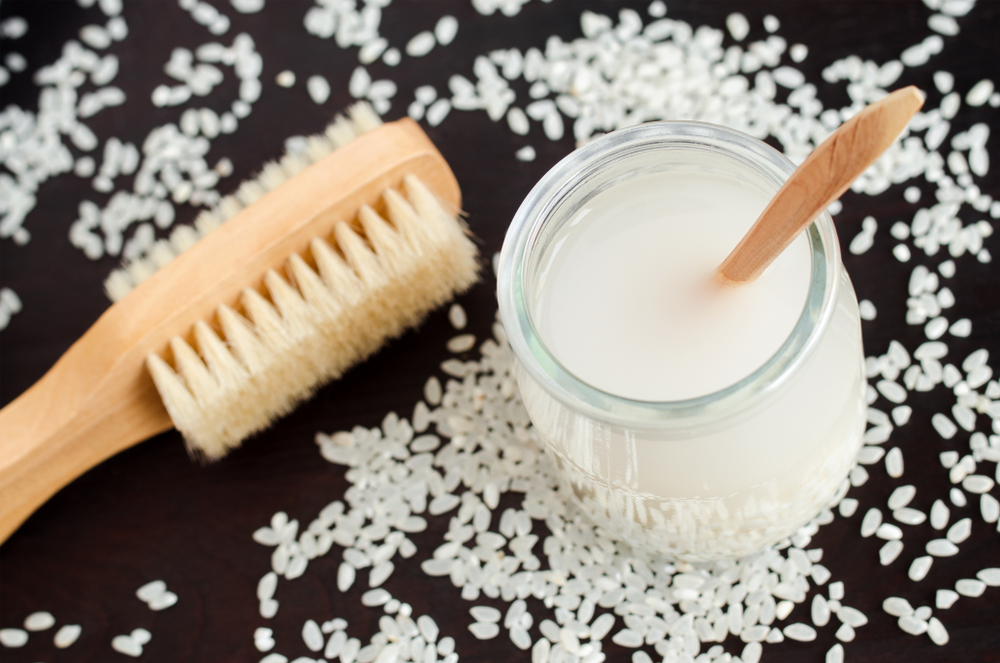Contents:
- Medical Video: Balanced Diet | #aumsum #kids #education #balance #diet
- 1. Calcium, an important substance for bone health
- 2. Vitamin D, helps the absorption of calcium in the body
- 3. Protein, the most important substance in growth
- 4. Fiber, complex but simple
- 5. Antioxidants, as an antidote
- 6. Iron, a nutrient that must not be forgotten
Medical Video: Balanced Diet | #aumsum #kids #education #balance #diet
Childhood is the peak of body growth and development, because it requires a good environment to support the process. One of the factors that influence a child's growth is nutrients obtained from foods eaten by children. There are no nutrients that can work alone to maximize children's growth, all have their respective roles. So, children need various kinds of nutrients so that the growth process can run normally and quickly.
Actually what nutrients do children need to grow normally and so that their growth can reach a maximum peak?
1. Calcium, an important substance for bone health
Calcium is a mineral that can help bones grow optimally and give density, so it is not easily porous. Not only is it needed by bones, calcium is also needed for heart function, blood clotting, and muscle function, although in fairly small amounts.
Basically, when the body lacks calcium, calcium reserves in the bones will be taken to replace the deficiencies. Because the main function of calcium is to solidify and strengthen bones, calcium deficiency can lead to osteoporosis later on.
The main source of calcium is all milk products. Calcium needs depend on the age of the child, according to the Ministry of Health are:
- Ages 0-6 months: 200 mg / day
- Age of 7-11 months: 250 mg / day
- Ages 1-9 years: 500 mg / day
- Age 10-18 years: 1200 mg / day
READ ALSO: Do Children Need to Take Calcium Supplements?
2. Vitamin D, helps the absorption of calcium in the body
Vitamin D plays a role in the absorption of calcium that is in food, then with calcium makes bones stronger. Vitamin D is found in various kinds of dairy products, as well as sun exposure. Vitamin D needed by children is:
- Age 0-11 months: 5 mg / day
- Age 1-18 years: 15 mg / day
3. Protein, the most important substance in growth
Protein is a macro nutrient that plays a role in building and repairing damaged tissue. In the body, the protein that enters will be converted into amino acids. This amino acid will be the body's raw material for building new cells and tissues. Several studies have shown that children who are given a diet rich in protein, especially animal protein, have an average normal height even higher than their age children. Whereas children who do not get adequate protein intake tend to be shorter.
Protein requirements according to the age of the child are:
- Ages 0-6 months: 12 grams / day
- Age of 7-11 months: 18 grams / day
- Age 1-3 years: 26 grams / day
- Ages 4-6 years: 35 grams / day
- Ages 7-9 years: 49 grams / day
- Age 10-12 years: 56 grams / day (male), 60 grams / day (female)
- Age 13-15 years: 72 grams / day (male), 69 grams / day (female)
- Age 16-18 years: 66 grams / day (male), 59 grams / day (female)
READ ALSO: 11 Best Sources of Protein from Vegetable Foods
4. Fiber, complex but simple
In order for the growth process to be good and run normally, fiber is one of the nutrients needed by children. Actually, fiber is part of carbohydrates, but these nutrients are classified as complex carbohydrates without calories. A study states that consuming sufficient amounts of fiber and frequent frequencies can prevent a person from being exposed to degenerative diseases or health problems. Health problems that occur in children, such as obesity, of course will directly affect the growth process.
Here are the children's fiber needs according to age:
- Age of 7-11 months: 10 grams / day
- Age 1-3 years: 16 grams / day
- Ages 4-6 years: 22 grams / day
- Ages 7-9 years: 26 grams / day
- Age 10-12 years: 30 grams / day (male), 28 grams / day (female)
- Age 13-15 years: 35 gram / day (male), 30 gram / day (female)
- Age 16-18 years: 37 grams / day (male), 30 grams / day (female)
READ ALSO: Why Is It Important to Eat Fiber Foods?
5. Antioxidants, as an antidote
Antioxidants are nutrients that can counteract damage to cells and tissues in the body and can prevent someone from being exposed to free radicals that can cause degenerative diseases. Examples of antioxidants are beta-carotene, vitamin A, vitamin C, vitamin E, lutein, lycopene, and selenium.
In the process of growth, these antioxidants actually work to prevent children from obesity or other degenerative diseases. When a child is obese, the growth hormone will be disrupted and of course this will hinder the growth process.
6. Iron, a nutrient that must not be forgotten
Iron in the body, about 70% is in the form of hemoglobin in the blood. Hemoglobin is a substance that functions to distribute food and oxygen throughout the body. Iron is also needed in the growth of children, this is evidenced by a study conducted in Saharawi which showed that iron-deficient children had shorter stature compared to a group of children who had enough iron.
The following are children's iron requirements:
- Age of 7-11 months: 7 mg / day
- Age 1-3 years: 8 mg / day
- Ages 4-6 years: 9 mg / day
- Ages 7-9 years: 10 mg / day
- Age 10-12 years: 13 mg / day (male), 20 mg / day (female)
- Age 13-15 years: 19 mg / day (male), 26 mg / day (female)
- Age 16-18 years: 15 mg / day (male), 26 mg / day (female)
READ ALSO: Be Careful, Your Toddler May Lack of Iron












